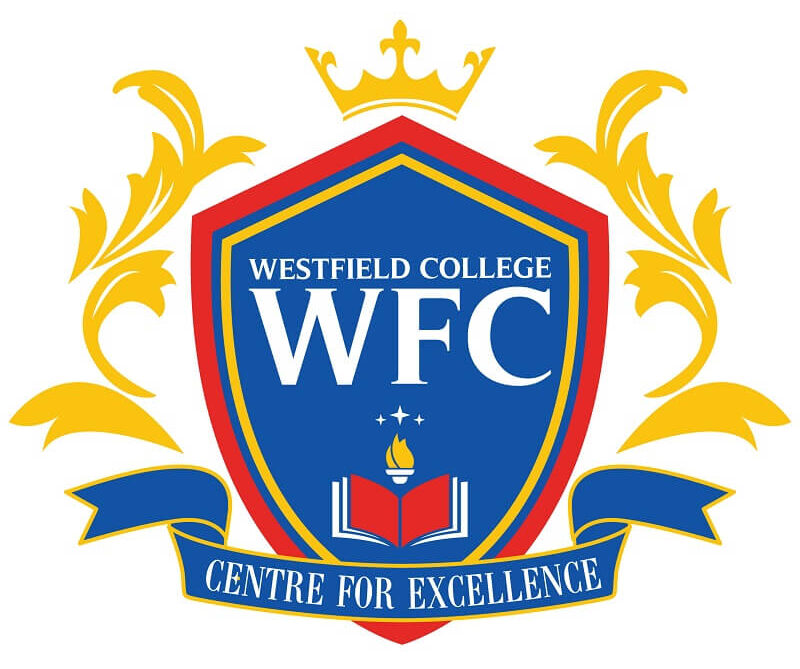Communication in Health and Social Care. Great Course. Very Easy to Understand
BA (Hons) Graphic Communication

Overview:
The BA (Hons) Graphic Communication course is not a typical Graphic Design course. Our team of academics and extensive industry network of commercially practising designers believe that a university design course should be equipping graduates with skills that prepare them for a rapidly changing world, ready to deal with tomorrow’s problems.
This current, bold and exciting course for young creatives who have a passion for photo manipulation, digital artwork, typographic experimentation that are inspired by the world of graphic design, those who are excited by building brands and logos, producing cutting-edge motion graphics, working with data to produce infographics, solving social challenges with campaigns, collaborating with other students; to those that aspire to produce interactive digital products for mobile and web platforms.
Through live briefs and your own creative practice, you’ll be encouraged to learn how to work with clients, the public and others, adopting design theories and methodologies to better understand and solve human-centered challenges within political, environmental, cultural, educational and social landscapes.
You will study and practice at USW’s creative campus in the centre of Cardiff. The city is rich in design agencies and opportunities to get involved in the emerging design scene.
The course has a fantastic reputation and working relationship within the creative industries. Our students learn to gain confidence and work professionally through our professional practice modules and industry experience events and opportunities.
Our graduates have been highly employable through portfolio, demonstrating creative thinking and digital skills focused on design challenges that matter.
BA (Hons) Graphic Communication
Typical A-Level Offer
CCC to include a relevant art and design subject (this is equivalent to 96 UCAS tariff points).
Typical Welsh BACC Offer
Pass the Advanced Welsh Baccalaureate Diploma with Grade C in the Skills Challenge Certificate and CC at A Level with a relevant art and design subject (this is equivalent to 96 UCAS tariff points).
Typical BTEC Offer
BTEC Extended Diploma Merit Merit Merit in a relevant subject (this is equivalent to 96 UCAS tariff points).
Typical Access to HE Offer
Pass the Access to HE Diploma with a minimum of 96 UCAS tariff points
Additional Requirements
GCSEs: The University normally requires a minimum 5 GCSEs including Mathematics/Numeracy and English at Grade C or Grade 4 or above, or their equivalent, but consideration is given to individual circumstances
Online application form
Information requested on this form should be completed in as much detail in order to process your application successfully. All fields marked * must be completed.
Apply Now
Entry Requirements
Contextual offers
We may make you a lower offer based on a range of factors, including your background (where you live and the school or college that you attended for example), your experiences and individual circumstances (as a care leaver, for example). This is referred to as a contextual offer and we receive data from UCAS to support us in making these decisions. USW prides itself on its student experience and we support our students to achieve their goals and become a successful graduate. This approach helps us to support students who have the potential to succeed and who may have faced barriers that make it more difficult to access university. Here is a link to our Contextual Admissions Policy.
Other qualifications and experience
We can also consider combinations of qualifications and other qualifications not listed here may also be acceptable. We can sometimes consider credits achieved at other universities and your work/life experience through an assessment of prior learning. This may be for year one entry, or advanced entry to year two or three of a course where this is possible.
To find out which qualifications have tariff points, please refer to the UCAS tariff calculator.
If you need more help or information or would like to speak to our friendly admissions team, please contact us here
Applicants in the UK
Selection for this course is based on a suitable application. If you do not meet the entry criteria, you may also be required to provide a portfolio of your work to help us assess your suitability for the course.
Applicants outside the UK
Selection for this course is based on a suitable application and submission of a portfolio of your work which the Course Leader confirms is suitable for an offer to be made.
WHAT YOU WILL STUDY
The modules on our Graphic Communication degree have been strategically considered to help you develop and progress from ‘design student’ to ‘design professional’. You will learn new ways to research and react as you progress through our ‘Crawl, Walk and Run’ approach to design education.
The degree starts with building a solid foundation in core skills:
- Design Principles – How we use the fundamental principles and elements of design to form visual messages
- Design Thinking– How we recognise and utilise the process of design to navigate from concept to prototype to product
- Design Research Methods – How to better recognise design solutions through perspectives and viewpoints
The course is your creative playground and in your final year is all about you, your independence, your craft, and your professional profile. This is where you will fine tune your portfolio and focus your career pathway. Your course ends with a graduate showcase that exhibits your work in a professional networking event.
Modules in Detail
Year One
The first year of the degree programme introduces you to the exciting world of Graphic Design. You will begin your course with three staple modules (Graphic Design Principles, Design Revolutions and Design Thinking) in the first semester and then apply these skills to three exciting practice-based challenge modules (Typography, Social Design and Infographics) in the second semester.
Graphic Design Principles (Practical)
You will undertake a series of exciting practical workshops during this introductory module to develop a greater awareness of how commercially practising designers command design principles to create effective pieces of visual communication.
Design Thinking (Practical)
Learn design thinking processes that are used within graphic design. You will undertake a series of workshops that develop your curiosity and subject understanding that you will apply to your practical design project and future practice.
Design Revolutions (Written)
How has graphic design evolved throughout history? This exciting research-based module will provide you with a key understanding of historic moments within graphic design, introducing you to societal and art and design movements that have influenced graphic designers.
Infographics (Practical)
During this module, you will learn how to communicate complex data sets and messages by designing for information. You will explore how data can be used as a highly inspirational source for conceptualisation, experimentation, and information-based design.
Social Design (Practical)
You will learn how design can be used to shape people’s behaviours by designing for campaigns and awareness. You will discover how design can be used as a force for positive social change through your own practical project.
Typography (Practical)
Type is an essential component within a 21st century designer’s workflow. Through your own typographic exploration and experimentation you will learn how designers command typography from expressive artforms to published clerical information.
Technical Instruction
Each module on year one has a series of technical instructors supporting the array of software applications that need to be learned.
Year Two
The second year focuses on current and emerging specialisms within Graphic Design. The curriculum provides 4 consecutive 6 week modules, developing highly desirable and employable skill sets. These modules consist of Branding, Motion Graphics, User Experience Design and Digital Product Design and are all employable fields within the creative industries. Two 12 week modules support these specialist modules (Professional Practice & Entrepreneurship and Design Research Methods).
Branding (Practical)
What does it mean to brand something? During this module you will learn how to capture a company’s vision, values, mission, behaviour, attitude, products, services, and audience, and apply these philosophies to a wide variety of designed outcomes.
Motion Graphics (Practical)
From movies, title sequences, and game interfaces, Motion graphics are used to build exciting and effective pieces of communication. You will explore how designers harness the power of moving-image through your own practical project.
Professional Practice and Entrepreneurship (Practical and Presentation)
You will gain exposure to the business of design and entrepreneurial activity of design agencies within the creative industries as you learn what it takes to pilot your own agency, exploring the needs of businesses, organisations and charities within the economy.
Design Research Methods (Written)
During this module, you will learn how research aspires to better understand and develop a culture of human-behaviour and needs. Graphic Designers use research methods to better understand their audience to gain insights and produce meaningful design solutions.
User Experience Design (Practical)
This module explores the emerging field of User Experience Design. You will learn how to design for both digital and physical spaces (Mobile Apps, Websites, AR (Augmented Reality), VR (Virtual Reality), Packaging, Retail and Public Spaces) through user-centred approaches to design.
Digital Design in Practice (Practical)
Digital Design in Practice introduces you to the exciting world of digital product design, where you will learn to work in digital teams through digital technologies, exploring digital production techniques and formats (photography, animation, 2D and 3D design) through a variety of creative challenges.
Year 3
The final year of the degree programme focuses on the development of your professional profile and identity. You will work with a series of mentors, industry professionals as you work on a series of live agency briefs, professional portfolio, competition briefs (D&AD), and Final Major Project, developing your creative practice to a commercial standard through the demonstration of your skills and independence.
Bootcamp for Creative Industries (Practical and Presentation)
This practical module prepares you for your final year of study and employability after graduation. You will undertake a series of strictly timed briefs, each delivered by an industry professional from a different arena of graphic communication.
Design Futures (Practical and Presentation)
You will learn how to create a professional brand identity and curate your creative portfolio before you investigate design agencies to identify the expectations of seeking employment within the creative industries.
Design Competitions (Practical and Presentation)
This practical module encourages ‘big thinking’ as you aim to provide creative solutions to some of the world’s biggest graduate-facing design challenges, framed in local, national and international design competition briefs (D&AD).
Final Research Project (Written)
Design can solve any problem, but before solving that problem, you need to understand the cause and the people affected by it. You will investigate a topic of your own choice and publish your own research document that will become the basis of your final major project.
Final Major Project (Practical)
Finalise your degree with your final major project and work on your dream design brief in this open self-directed module. This module ends with a graduate showcase, allowing you to show future employers the kind of design graduate that you want to be.
Teaching
The Graphic Communication course is comprised of both fixed lectures and seminars delivered by visiting industry professionals. The fixed team is a blend of industry practitioners, academics, and researchers. Visiting lectures range from design business proprietors to freelance designers with specialist skillsets in key disciplines within the subject area. The course is highly practical in delivery and continuously focused on the development of you, your professionalism, your digital skillset and creative confidence.
Lectures range from contextual lectures, practical workshops, studio support sessions and design critiques. The campus has a range of Adobe Credited digital technicians that support a plethora of design software applications taught both online and on campus.
Assessment
The course provides a range of assessment methods that are all intended to develop expected transferable and employable skills.
Assessment methods to expect on this course are:
Practical assessment
Practical assessment varies from the submission of your design process work and outcome for assessment and review. This mostly takes the form of an assessment mark sheet that not only identifies areas of award but also areas for improvement to aid your progression.
Some practical modules end with a Design Critique, A show and tell whereby the cohort exhibit their work and an informal setting for feedback. Students will be expected to informally explain their work and discuss their project in a safe-space setting intended to increase confidence, vernacular, and terminological usage when challenged to define and describe their design work or process journey.
Presentation assessment
The course has several models assessed by the presentation assessment methods. These are primarily intended to increase a student’s confidence when discussing / pitching their ideas / outcomes. Presenting work with confidence and demonstrating defensive knowledge around the design process is an expected skill within this discipline.
Industry professional assessment
The course works with several industry professionals and clients and therefore student can expect to receive active feedback from a broad range of professionals.
COURSE DETAILS
Placements
Students can opt to change their mode of study to a sandwich option, allowing a student to gain a year of work experience and obtain additional course credits. Opportunities for employment during sandwich placements may be arranged by the student or through industry outreach directly with the university course or on-campus careers teams.
Many students will pick up freelance opportunities, industry placements and internships alongside their studies through exposure to live clients, industry practitioners and design agencies within the course professional network.
Our well-established industry network allows students to interact with design practitioners, creative directors, account managers, project managers as they start to develop their professional engagement within the creative industries.
Facilities
Specialist facilities include Green Screen Capture Studio, 3D Printing facilities, laser cutting machines, photography studios and printers. Our studios are equipped with the latest Macs with Apple Silicon, specialist software (Adobe Creative Cloud, Cinema 4D and Figma), as well as Wacom Graphics Tablets to help support you with your design practice. The course offers specialist equipment such as DSLR cameras, but a much wider range of specialist equipment, such as Macbooks, iPads, Camera Lenses and Lighting Kits can be borrowed from our student equipment loans services. The library offers an exceptional range of design books, magazines, and journals.
The course provides students with their own Adobe Creative Cloud account, with full access to Adobe’s suite of apps, including Photoshop, Illustrator, InDesign, After Effects and Premiere Pro.
Students have access to a Risographic printer for those who are interested in traditional methods towards colour separation and further traditional resources are available at the University’s Treforest campus. The University provides a fantastic remote printing service with campus delivery.

Additional Costs
As a student of USW, you’ll have access to lots of free resources to support your study and learning, such as textbooks, publications, online journals, laptops, and plenty of remote-access resources. Whilst in most cases these resources are more than sufficient in supporting you with completing your course, additional costs, both obligatory and optional, may be required or requested for the likes of travel, memberships, experience days, stationery, printing, or equipment.
CAREERS
Students completing this degree typically progress to the following career pathways:
Digital Graphic Designer
Brand Consultant
User Experience Designer
Motion Graphic Designer
Campaign Designer
General Designer (Marketing)
User Interface Designer
Continued Education (master’s degree)
Continued Education for teaching (PGCe qualification)
Students graduating from Graphic Design degrees typically tend to work in Design Agencies or as inhouse designers for large organisations with embedded design teams. Graduates tend to start a freelance practice in situation share they require mobility (world travel).
Our Careers and Employability Service
As a USW student, you will have access to advice from the Careers and Employability Service throughout your studies and after you graduate.
This includes: one-to-one appointments from faculty based Career Advisers, in person, over the phone or even on Skype and through email via the “Ask a Question” service. We also have extensive online resources for help with considering your career options and presenting yourself well to employers. Resources include psychometric tests, career assessments, a CV builder, interview simulator and application help. Our employer database has over 2,000 registered employers targeting USW students, you can receive weekly email alerts for jobs.
Our Careers service has dedicated teams: A central work experience team to help you find relevant placements; an employability development team which includes an employability programme called Grad Edge; and an Enterprise team focused on new business ideas and entrepreneurship.
Fees
Full time
- 12 to 18 months
£7,250
You’ll study 9 modules in total (approx. 37 hrs/week).
Part time option one
- 12 to 18 months
£4,250
You’ll study 6 modules per year (approx. 25 hrs/week).
Part time option two
- 12 to 18 months
£5,500
Have a question about our professional qualifications?

Contact us about our professional qualifications
If you have any questions about our professional qualifications in finance and banking, please contact our customer services team.
Call us
- +44 (0) 203 771 5653
- admissions@westfieldcollege.co.uk
What Our Students Have To Say
Hi, I recently started Access to Higher Education Diploma (Nursing and Midwifery) course with Westfield College.
--Komal Kiran Galaria
DesignerMy experience with Westfield College is great. The supervisor and the admin team are proactive and efficient.

